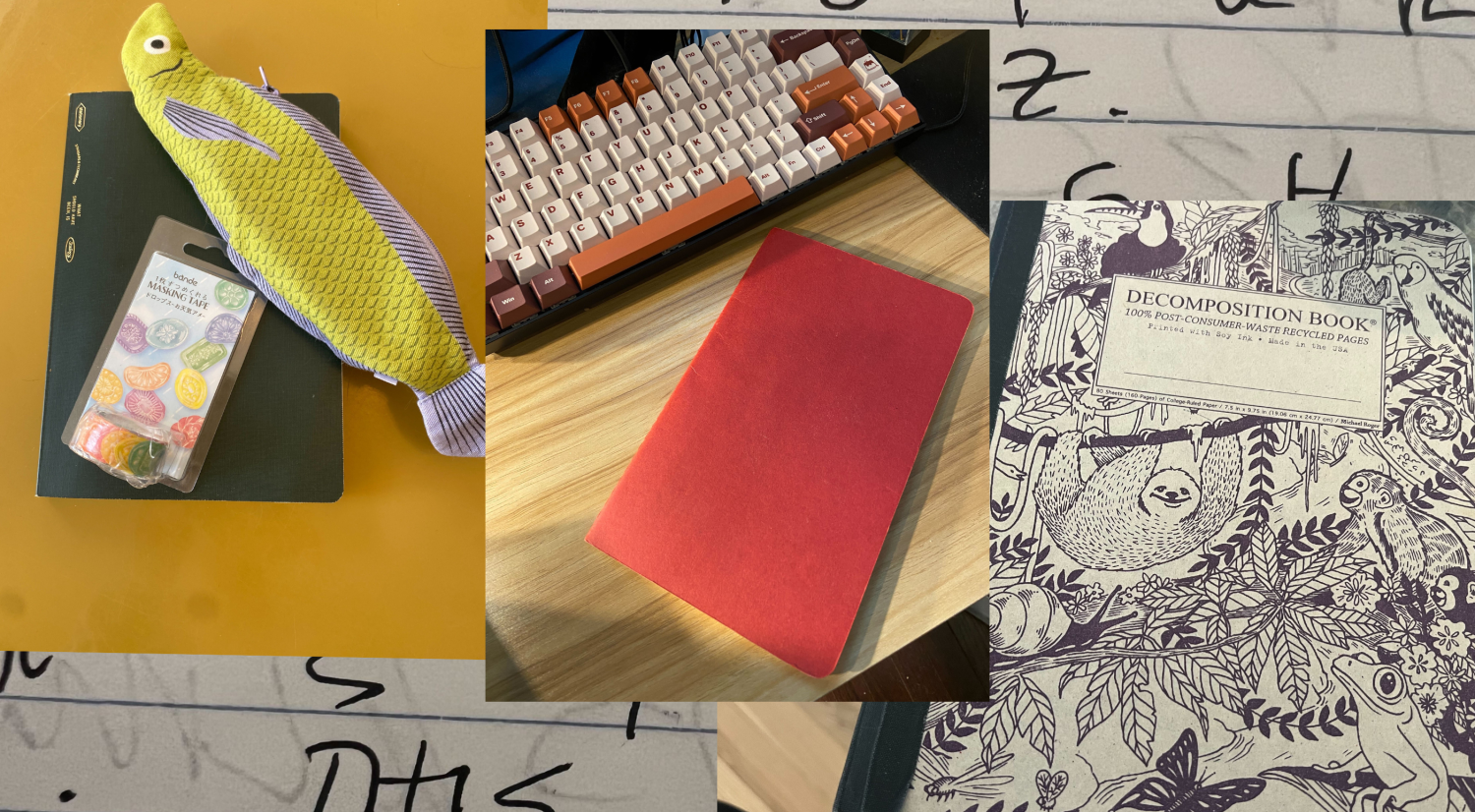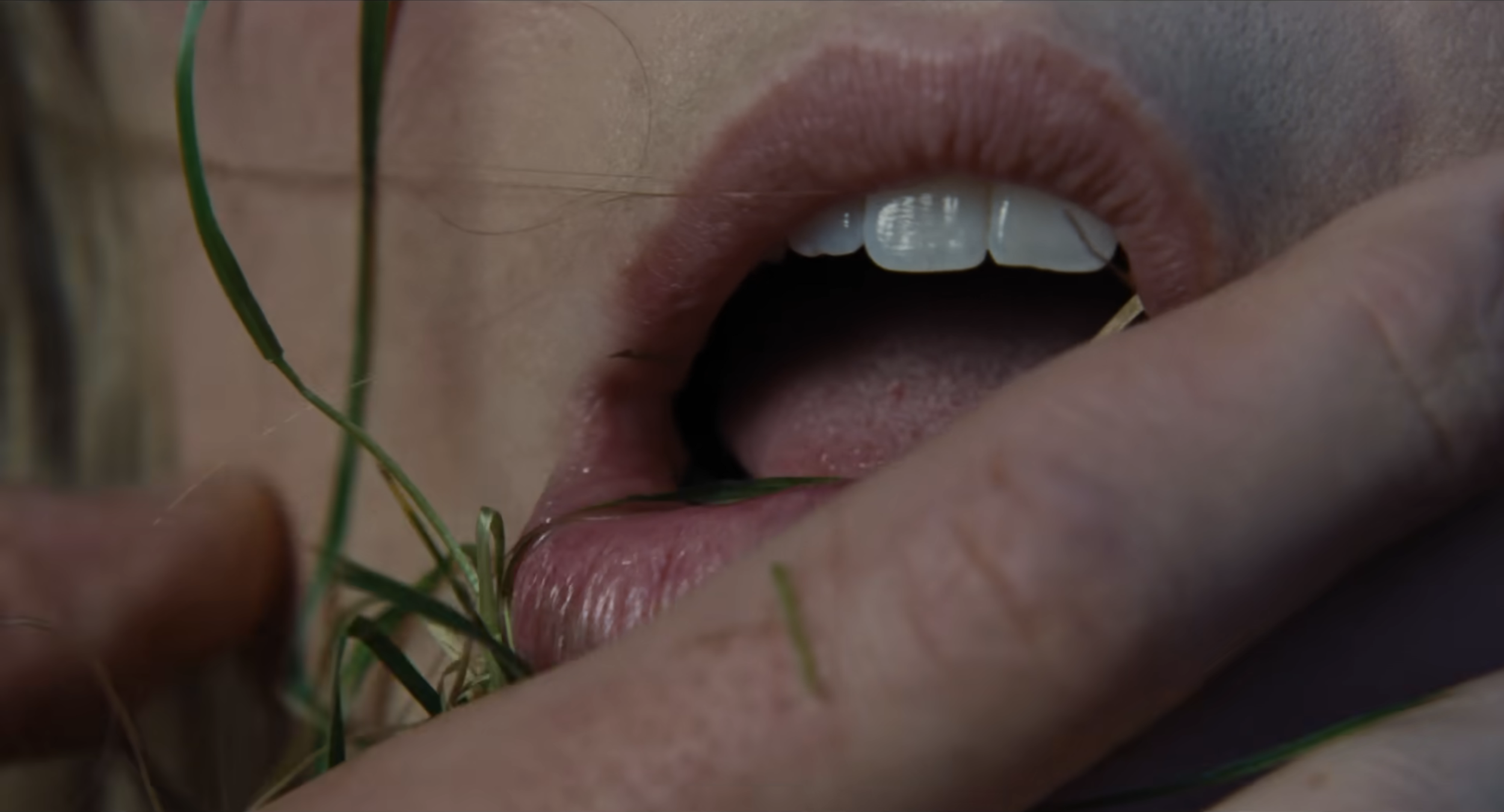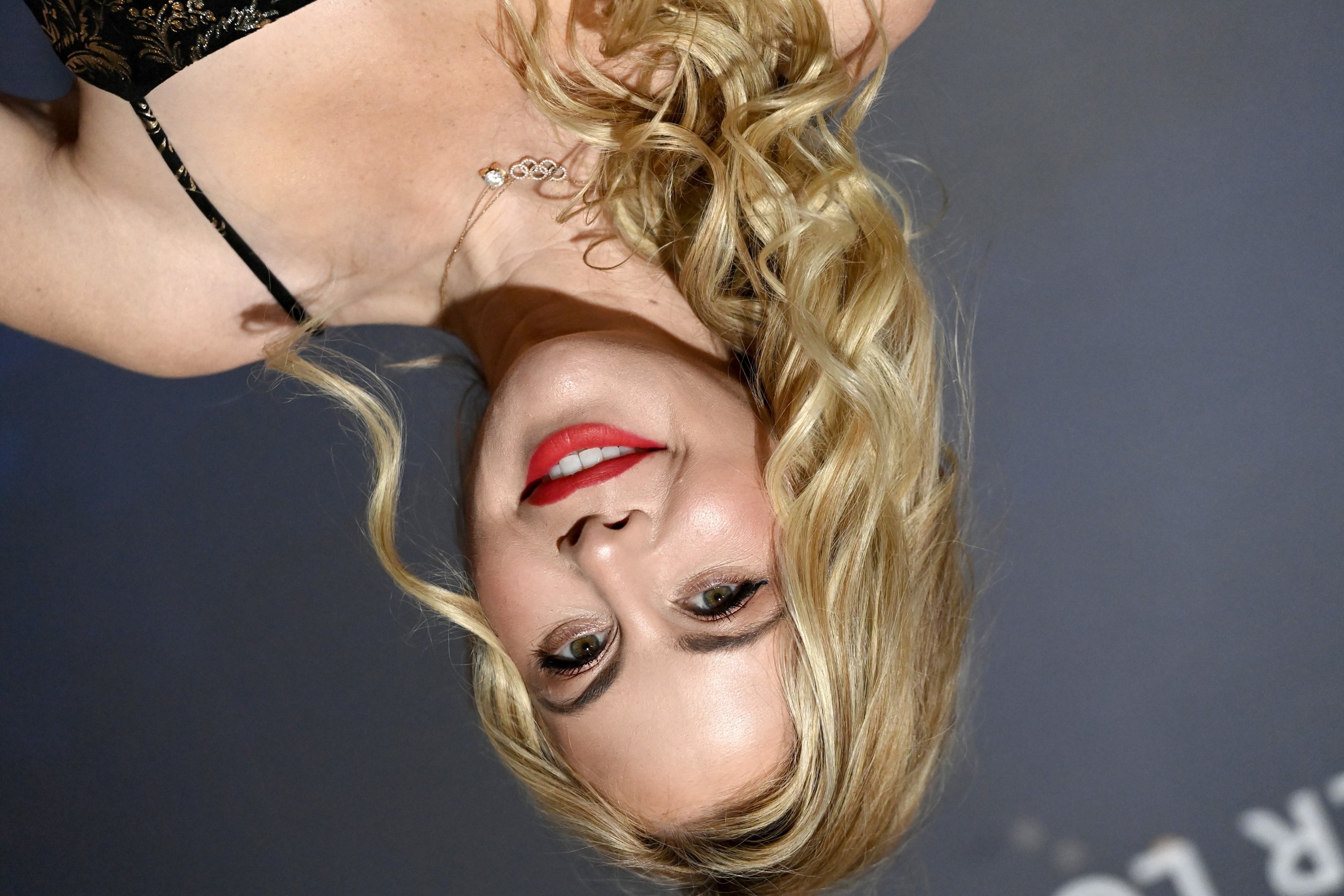We did it. We completed 12 weeks of morning pages, artist dates, media deprivation, and affirmations. We have walked The Artist's Way! Are we artists now? That is yet to be determined. For our very last check-in, we're reflecting on what these last three months brought us, from the carpal tunnel to the breakthroughs, to see if it was all worth it.
What did you enjoy and loathe most about doing The Artist's Way?
Alex Sujong Laughlin: One of the primary reasons I decided to do TAW is that my winter depression is so, so bad, and I thought it might be helpful to have a structured way to pass the worst of the winter months. And I was right! This was the least depressed winter I've had in recent memory. I think there's something to locking into a structured program and just focusing on getting to the end that helped me, at least, keep from getting mired in the never-ending gray that is January–March.
This three-month period also saw a stunning amount of change in my personal and professional lives, and I'm grateful that I had a reason to closely record every moment of the process. I would have been journaling anyway, but the morning pages meant that I was actively processing every twist and turn that came, and that processing helped me understand how I felt and what I wanted out of different situations.
I think the thing I loathed the most was the general tone Julia Cameron had throughout the book. It was very bootstrappy and, dare I say, privileged in the way she was like, "Simply make a movie and make a ton of money! If you don't, you just don't want it enough!" I think throughout the process, I found myself balancing multiple truths: Sometimes it does take a radical and abrupt mindset shift to see changes in your life, but also, prescribing that broadly as the solution to everyone has disturbing and unsustainable societal implications.
Ray Ratto: Well done, Alex. You had a vision about combating a problem and found a way that makes the best sense to you as well as working on multiple levels. You should be happy about this process because it seems to have provided not just creative therapy but therapeutic creativity. It missed me on most of those levels, but the fact that it worked so well for you reminds me that one size never fits all. As for loathing, I didn't overtly hate any of it because I chose to do it and could have walked at any point. I also didn't expect anything from it, and on that level I was largely just unmoved. As for what I loathed, well, I'm with Alex on the tone. It felt like the great baseball player who has become a manager and gets frustrated when his players aren't as good at the game and says, "Well, do it the way I did." I have the book now, but I can't think of anyone off the top of my head who would benefit from it so it looks like library meat. Maybe it catches a stranger in a better head space.
Sabrina Imbler: Yeah, enormous kudos to you, Alex, for anticipating a problem and creating a solution that also became a bonding activity and blog for the site. Now that's what I call multitasking! But more seriously, my favorite thing about TAW has been the morning pages. I know I've said this a million times, but I've always wanted to journal but never could make myself do it, and now I realize not just how easy it is to start journaling, but also how writing down the stuff you're thinking about every morning can help you clue into anxieties, patterns, and also recurrent joys of your life. That's been a real treat—naming all my joys and the things I am grateful for. I went into TAW after a friend warned me about the time Julia Cameron asks you to "Find your Africa" as a metaphor for something creative, so I was not expecting much from her. I appreciated her inviolable belief that every person has an artist within them waiting to be defenestrated through the process of morning pages and artist dates. But I found much of her practical advice almost laughable for its assumption of the reader's abundance of time, money, and other privileges. (TFW you realize it's been 10 years since you bought a horse!) And the name-dropping was annoying too.
Kathryn Xu: My favorite thing about TAW has also been the morning pages and artist dates. That was what initially drew me to the project in the first place; I don't even know what my expectations for the text really were. I expected on some level that it was going to go into woo-woo self-help talk, which I fully went in knowing would not be for me. I still wish I had Sabs's friend's warning about "Find your Africa," because I did also find myself legitimately shocked at points with her language. That said, I was more or less able to ignore the stuff that annoyed me and let myself be intrigued by the stuff that was interesting or resonant; I think it's rare that you get to learn the totality of someone's artistic world view, and there is something special in terms of reading that and recognizing some elements of it. It also gave me an excuse to use up old journals (which is a bit generous—they're more like notebooks) that I bought like a dirty little consumerist.
Chris: I struggled so badly with the morning pages, the whole way. Journaling just never ceased to be a grind. I think I reached catharsis or any sort of beneficial dumping-out maybe, maybe four or five times in 12 weeks. I feel certain that there must've been at least one day in there in which I did not spend my journaling time actively stressing over the better ways that I could be spending those minutes, but I do not remember that ever happening.
I liked the artist dates, when I found or made time for them. I am someone who struggles with giving myself permission to do fun or enriching things. That is not to say that I don't do those things, but for my entire life I have had this weird thing of always feeling like there is something illicit about doing things for fun. As a consequence, all of the stolen-seeming hours that I have spent, you know, playing video games, or binge-watching television shows, or even on reasonably productive pastimes (gardening, cooking, playing basketball) come with some measure of background guilt. Thus these sessions aren't quite as useful, emotionally, because I wasn't supposed to have them, and I have to try to atone for them after the fact, which means that I am always desperate for some kind of break, or for some formal external permission to relax, even after I have spent half a day reading a book on my porch, or whatever.
The artist date involves a prompt, and implies both internal and external permission. This doesn't solve anything outright—it still often felt like playing hooky—but at least a couple of times in there I found it easier than usual to convince myself that I was doing something good and even responsible, by going out and looking for beautiful or challenging or inspiring things, or simply by reading in a bathtub. That was neat.
Did you learn anything about creativity or yourself in this process?
Ray: What I learned, if it can be called learning, is that I have a low tolerance for creativity templates because they seem oxymoronic. Part of the creativity process is figuring what works for you, and the book always seemed like a way to beat creativity into you. I'm surprised it wasn't hardbound so it could be used to strike you in the forehead more effectively. It makes more sense to me to find someone or something you know and just talk and experience things until a spark reveals itself. Then it belongs to you on your terms and can take you where it feels best. Aggressively trying to be creative isn't creativity. It's just a grind, and creativity leads to the grind, not the other way around.
Alex: I think all the things I learned were things I knew but needed reinforcing: I am personally happiest when I'm actively making things, creative work takes patience both in the long term and the short term, and community is a huge part of feeding my creative life. Refreshing these truths for myself is helpful as I look forward to a post–Artist's Way life; I hope I can keep them front and center in how I continue to shape my day-to-day life.
Sabrina: I have been thinking about what Cameron wrote about artist dates as refilling the well, which I definitely believe to be true. I don't think you need a luxurious single-person creative activity to refill the well, but I think in the past I've attempted to quit Slack and immediately open Scrivener to try and write, and that's gone just about as well as you'd expect. I've been trying to give myself time to unwind and unspool and encounter non–work-related art to just jiggle my brain around in case there are new associations to be made.
Kathryn: The morning pages wound up serving as a sort of barometer in my life: When it was difficult to do them, it was because my routine was all screwed up, and when it was easy to do them, it was because I'd briefly found a rhythm. I should say at this point that I never had a complete week of morning pages, which, yeah. It was interesting because there are certain things that I usually find helpful for my creativity—going on vacation, for one—that absolutely weren't helpful in terms of artist dating or morning paging. And I guess in that sense, I didn't need them while I was gone, but they were helpful for when I was living life normal style. The Artist's Way processes were kind of like homework, in terms of holding me accountable for something to do in ways that were helpful and necessary, but also like homework, in the sense that I would constantly find excuses and workarounds and justifications for not needing to do them.
I also learned that I'm really not a natural journaler, as much as I'd like to be.
Chris: I think I learned that however dysfunctional my particular creative tap-dance might be, the chaos suits me decently enough. There are other ways of doing things, and I like to try other ways, but it annoys me that Julia Cameron never considers for a second the possibility that her way might sometimes present obstacles to the flow of creativity in people who are wired differently, or are navigating vastly different life circumstances.
I think she has her heart in the right place, more or less: She detects, rightly, that many people feel closed off from their inner creative drives, and need prompts that break them out of ruts and orient them afresh. But this program feels less to me to be about creativity than it is about productivity, and I guess in the end that confusion grossed me out just a little bit. Or maybe this is just me expressing a lifetime's worth of contempt for expectations. But like Kathryn I have come back from good week-long vacations absolutely overflowing with creative inspiration, and without any of the miserable tedium of daily pages or reading soul-darkening chapters about how Julia's millionaire day-trader bachelor pal discovered his inner Picasso or whatever. Like Ray, I think that cramming it into a template can be profoundly inhibiting. Inspiration takes many forms! After 20 minutes of scrolling the Analog subreddit, I am prepared to overhaul my entire life. Just let me live, Julia.
What did you do during this experience you would not have otherwise?
Alex: I auditioned for a play! I absolutely would not have done this otherwise, but my morning pages led me to realize that I missed performing and wanted to find a way to work more of it into my life. The thing is, joining this theater company has unfolded so many more lessons and relationships for me that have been so valuable. The play was really the biggest change I made in my life and I think I'll always think of it in partnership with the work I did on TAW.
Ray: I tried to view the ordinary as potentially extraordinary and found that most of the time, nope, it's just ordinary. I found some interesting notions in things I wouldn't normally spend much brain energy on, but I wasn't able or interested in making it into something bigger than I thought it was meant to be.
Kathryn: I don't know if I would've gotten into board games, honestly. Well, I think I would've gone down the same rabbit holes and gotten obsessed with the same forums, but the biggest mentality shift for me was "If you want to do something, you can just start!" Which is, I suppose, how one winds up playing a board game 16 times in nine days. I almost hesitate to say that, because buying board games costs money, and part of the pleasure of building a board game collection is just amassing stuff—but legitimately, bringing in another form of entertainment that doesn't involve me staring at a screen is huge.
Chris: Certainly I would never have journaled for 12 weeks. I am willing to acknowledge, though, that I was a few weeks into this exercise when I saw some cool 35mm photos taken by a fellow Defector person, thought ahead to a major trip I have coming up, and made the decision to invest in an old film camera. It would be lousy of me to dismiss the possibility that this happened because certain creative windows had been cracked open by Cameron's protocols. At any rate, I am having a blast with photography, and I cannot say for sure that I would've gotten here otherwise. Salute.
[15 minutes later] OK, thinking this through: I definitely started down the photography path because of artist dates. I live in a remote area and it's hard to get in a genuinely engaging outing in the middle of winter, when you are surrounded by farms and the only route into town is choked by commuter traffic. I think (in addition to what I wrote above) I started to feel like I would need to kind of bring the inspiration with me, if that makes sense—like I could not claim to get anything inspiring or nurturing from the same chilly walk up the lane six weeks in a row. So the idea of giving myself a literal new lens through which to view my surroundings gained traction in my brain.
Sabrina: I think giving myself permission, early on, to call playing The Sims an artist date was a dangerous line to walk, because then I began playing a LOT of The Sims, in part because then I could say I had done my artist date without actually being intentional about a real artist date. But I think it was actually very generative to play The Sims while doing TAW.
I think I talked earlier about my painter Sim who got sad and stressed when she was not painting, so I just made her churn out masterpiece after masterpiece, which flooded the household with money and furnished the comfortable lives of her roommates. Each masterpiece she sold made her a little more famous, and after a brief spell where I turned off aging because I felt anxious about the idea of her dying before she had ever fallen in love—don't worry, she met a really hot Sim at the library—my Sim became actually famous, so famous that she was surrounded at all times by an ethereal white glow and she adopted a new, snooty walk. But even as she was experiencing love for the first time, I realized I was growing so bored of my artist Sim, who woke up each day, painted at least two masterpieces, and then tried to go to work off-hours at her painting job, because she was a workaholic. Unsurprisingly, watching a Sim paint is not very engaging stuff!
I found myself naturally spending more time with the painter Sim's brother's long-time girlfriend, who had recently switched careers from aspiring to be an astronaut to to instead aspiring to be a stand-up comedian. At first, this felt far more embarrassing than painting. I would make her stand in front of her bathroom mirror and practice her standup routine. Then she would change into her horrible, itchy-looking work outfit and make like $200 a day (compared to the painter Sim's easy $2,000 a day). I turned aging back on, and it became clear to me that my comedian Sim would never reach the top of her chosen career before she grew elderly. But what can I say? I was actually invested in her desires, more so than her career ascension. She constantly wanted to tell jokes to other Sims, and there seemed to be a limitless selection of jokes to tell: jokes about penguins, jokes about body hair, etc. She made everyone in the household happy! If I lost track of her, I'd zoom out and find her splashing in the mud outside her house. She was having a great time in her little virtual life! So I kicked the painter out and switched my focus to the comedian Sim, who is far less of an accomplished artist than the painter. But it seemed to me that the comedian Sim had figured out a better way to live, and to approach art as a way to enrich one's life, as opposed to the other way around. And that is a lesson that will stick with me, I think.
Chris: Sabs, I love this rundown of the dynamics of your Sims household so much. I consider reading it to have been an artist date.
Kathryn: In my generous application of the term "artist date," I called a friend and they told me about their Sims storylines; reading this was the same legitimately blissful experience of mad dollhouse storylines.
What does Julia Cameron get wrong about creativity?
Ray: Covered above. But maybe it's not that she got it wrong as much as she was so sure she got it right. I told the book to shut up on multiple occasions, and got more out of that than anything it produced on its own.
Chris: Heh, Ray, early in the book I found that I was doodling an eye-roll face next to particularly obnoxious sections, and then later I took to muttering things like "Shut up," and "Leave me alone," and "Christ."
Alex: Yeah, I think that her conviction that she alone has the secrets to building a rich and creative life is troubling, and wrong. A certain level of monasticism can be helpful, but it's definitely not the only way.
Sabrina: One does not need to buy a horse to be a creative.
Ray: Besides, the horse wouldn't find it very creative. Rent a car, get a ride, but leave innocent mammalian means of conveyance be.
Kathryn: My brain basically stalled out at any mention of a higher power, or explicitly religious language as applied to creativity. Just doesn't work for me.
Would you recommend doing this process?
Ray: Nope. I wouldn't tell anyone not to do it, but I wouldn't pitch it to anyone. What I would recommend is Alex's worldview on it because it resonated for her in a way that it didn't for me, and tell anyone who asked that it works for some folks, and that the reading and exercises might be effective if you're in the right frame of mind for it. That's why the rest of you are measurably better people.
Sabrina: I would recommend anyone take the tools of TAW—morning pages and artist dates—and pursue them without ever cracking open the book.
Alex: I would recommend it only if you are capable of reading a self-professed guru critically and feel confident cherry-picking what works for you and letting the rest go. I actually think that's crucial to being able to get something out of this process, because I think following Julia's entire gospel to the letter might be fairly unhealthy for your mind/self-esteem/bank account.
Kathryn: Yeah, I'm somewhere between Sabs and Alex. I think the morning pages and artist dates are honestly super fruitful activities that anyone can do, without even needing to read the book, but also, the book can be interesting or helpful, so long as you're able to roll your eyes and move on at the stuff that isn't applicable or doesn't work for you. But, then again, I'm all about process more than anything.
Chris: For all of my griping, yes, I would recommend it. Because I do believe that people should try different things. The fact that I felt more oppressed by it than inspired does not mean that it would not work for someone else. Also, I am perfectly willing to believe that I am more constitutionally a dipshit than many other people, and thus harder to change. Even someone else who considers themselves a being of pure chaos might really gain something from the structures suggested here. Or, at any rate, artist dates are fun. I will try to continue with these, and I would heartily recommend them to others. Call them whatever you like: It's good to make time for inspiration.
What did you do with your journals?
Ray: The blue recycling bin, and that was very therapeutic indeed. Not creative by any means, but good for the coal mine that is my soul.
Sabrina: I'm hoping to keep writing in mine! I'm a little over two-thirds through. I've never finished a journal before! I'm going to take myself out to dinner or something when I finish it. And then never, ever open it again.
Ray: Never underestimate the energizing power of binning your work.
Alex: I'm on my third notebook in three months; they're all going into the giant cardboard box in my closet where I keep all my other notebooks. One day I'll archive them in a nice way, but I'll need to stop living my transient life first!
Kathryn: I wish I could have the cathartic experience of either throwing away or shelving my journal! Because I write so tiny, mine isn't filled out yet, and it'll probably return to an itinerant lifestyle in my backpack.

Chris: I deleted all of the ones I did electronically. Today I will tear out the pages that I wrote by hand. I think burning them would be very satisfying. I have a stupid half-rusted chiminea in my front yard, and an old pile of kindling mouldering under it. The more I think about this, the better I like the idea.






